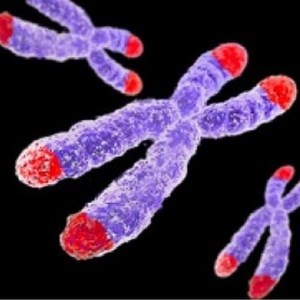
According to the Bible “the days of our years are threescore years and ten”, which in modern English translates to 70 years.
The fountain of youth and immortality
With the help of good nutrition, a safer environment and modern medicine, many people nowadays live into their 80s, 90s and even 100s. Statistically speaking this is real progress, but the fountain of eternal youth and immortality is still out of reach.
Or is it?
There are animals and organisms on earth that, while not immortal, seem to resist the ravages of ageing to a remarkable degree. A few examples from the animal world are clams, tortoises and lobsters – and among the botanicals, the bristlecone pine (Pinus longaeva), some of which are almost 5 000 years old.
Lobsters are ‘biologically immortal’
In 2009 Canadian fishermen caught a lobster that weighed almost 10 kg and was estimated to be more than 140 years old. Lobsters are one of a few species that seem to be “biologically immortal” because they don’t die from old age. In other words, they do actually die, but they don’t age.
Read: Is ageing a disease?
In the case of humans, we grow old and die because the so-called telomeres at the end of chromosomes get shorter each time a cell divides. Like the plastic tips at the ends of shoelaces, the telomeres protect our genetic data by keeping chromosome ends from fraying and sticking to each other. When telomeres get too short, the cell can no longer divide and eventually dies.
Lobsters’ telomeres, however, are constantly rejuvenated and don’t shorten, thanks to an enzyme called telomerase. Humans also produce telomerase, but not nearly as much as lobsters, and as we grow older and our cells keep on dividing there is no longer enough telomerase to prevent the telomeres from shortening – and we end up ageing.
A new procedure
The logical assumption therefore is that if we can somehow manage to keep our telomeres from shortening or adding to their length once they’ve shortened we should be able to keep ageing at bay. (This theory has however not been conclusively proven and it is not yet certain if shorter telomeres are just a sign of ageing or an actual contributor to ageing.)
This is not as far-fetched as it may sound and scientists at the Stanford University of Medicine have recently developed a new procedure that can quickly and efficiently increase the length of human telomeres.
Read: Anxiety tied to premature ageing
The procedure, which involves the use of a modified type of RNA, has succeeded in lengthening the telomeres of treated skin cells, enabling them to divide up to 40 times more than normal cells.
According to Helen Blau, professor of microbiology and immunology at Stanford and director of the university’s Baxter laboratory for Stem Cell Biology, they have found a way to turn back the internal clock in these cells by the equivalent of many years of human life.
“This study is a first step toward the development of telomere extension to improve cell therapies and to possibly treat disorders of accelerated aging in humans,” said John Cooke, MD, PhD, a co-author of the study.
New findings
Recent studies indicate that telomere length can be affected by a number of lifestyle factors, which suggests that changing your lifestyle can affect the rate of ageing and the onset of age-associated diseases.
These studies indicate that telomere length, which can be affected by various lifestyle factors, can affect the pace of ageing and onset of age-associated diseases.
The lifestyle factors which may affect telomeres, human health, and ageing are:
- Smoking
- Obesity
- Exposure to harmful agents
- Nature of one’s profession
- Stress
- Diet/dietary restriction
- Intake of antioxidants
- Exercise
The role of the mind
Dr Arien van der Merwe MBChB (Pretoria) FRSPH (London) MISMA (UK), author of the website Ariani Health Solutions and Health24’s Natural Health Expert, takes telomerase and the concept of longevity a step further.
Read: Flex your mind
Dr Arien concurs that you need more telomeres to convince your cells that you are younger. She however believes that you can only do this if you let go of your old and flawed patterns. In her own words: “You need to make a concerted effort to let go of your past, your misconceptions, fears, worries and negative ingrained views about life, and your body will regenerate your DNA accordingly. It is almost like a miracle – you do the emotional release work, and your wonderful body will serve you as it always does to bring you the exuberant health and happiness you deserve.”
Read more:
Caffeine and alcohol affect your DNA
Sources:
Dr Joe Dispenza's Blog: Telomeres: What Does a Lobster Know That You Don’t Know? http://www.drjoedispenza.com/blog/general/telomeres-what-does-a-lobster-know-that-you-dont-know/
Learn.Genetics: Are Telomeres The Key To Aging And Cancer? http://learn.genetics.utah.edu/content/chromosomes/telomeres/
Stanford Medicine News Centre: Telomere extension turns back aging clock in cultured human cells, study finds (2015). https://med.stanford.edu/news/all-news/2015/01/telomere-extension-turns-back-aging-clock-in-cultured-cells.html
NCBI Resources: Telomeres, lifestyle, cancer, and ageing (2011). http://www.ncbi.nlm.nih.gov/pmc/articles/PMC3370421/
BBC earth: The Animals and Plants that can live Forever (2015). http://www.bbc.com/earth/story/20150622-can-anything-live-forever
Ariani Health Solutions. http://drarien.co.za/




 Publications
Publications
 Partners
Partners















